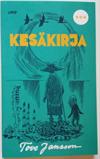
Blink: The Power of Thinking Without Thinking
by Malcolm Gladwell | Nonfiction | This book has not been rated.
ISBN: 9780316010665 Global Overview for this book
ISBN: 9780316010665 Global Overview for this book
1 journaler for this copy...
I got this book because I have a required book review in my first full credit Library Sciences class - and this was one of the options.
Read in Sept 2016:
I am both listening to this on overdrive, and reading the paperback. I have an assignment for grad school to do a book review - so I am probably over-thinking it.
I will post my assignment/review once I have it all done. and here it is (10/2/16)
I choose my book, and then ordered from Amazon, because I like to have my own copy to mark up. When the book arrived, I started reading, and marking, and then thought I would never get through it, so I got it on Overdrive from my library. I listened to the book while I drove to and from work, and then, once safely at home, I would pull out my paperback copy and mark things I thought of while listening. It worked pretty well, and my book ended up with lots of post-its. The red is for Info 200, the blue is for a review I may write for one of the police journals, and the yellow are books and such I think I want to add to my wishlist.
Blink is described by the author as a "book about rapid cognition about the kind of thinking that happens in the blink of an eye." (p.2 of reading guide). I found the book to be more about how the human mind makes decisions, sometimes in the "blink of an eye" and sometimes after much scrutiny. The rapid decision is often one that we can't explain how we got to it, but that doesn't mean that it is less valid than the decision that came from research and deliberation, in fact sometimes it is more valid.
Malcolm Gladwell is a writer for The New Yorker, and has published several books including this one and Tipping Point, about psychology and sociology. He was awarded the American Sociological Association's first award for excellence in the reporting of social issues in 2007 (wikipedia.com).
The book is split up into chapters, each focusing on a keypoint, like "thin-slicing" (p. 18), priming (p. 52), or mind reading (p. 189). The goal with this book seems to be to raise awareness about how the human mind thinks, and how to use that to the advantage.
In the Introduction, the idea of first impressions is discussed. We are taught that we need to be wary of the first impression; don't judge a book by its cover; and yet the human mind puts a lot of weight on first impressions. We may choose to see a movie because we liked the poster. Scanning the library's website either entices you to stay awhile or repels you to find another avenue to find your information. As guardians of the knowledge, information professionals need to be aware of the first impression tendency.
The first chapter brings up the idea of thin-slicing which is the unconscious mind finding similarities in situations and behavior with very little information. We tend to make conclusions based on what are seemingly small factors. In one of the examples, Gladwell tries to decipher why one doctor is sued for malpractice when another is not. By observing doctors, and interviewing patients it was discovered to not be a complicated issue at all, it really becomes a matter of respect. "She never looked at me as a whole person," (p. 41) said one patient. This concept is important to information professionals, when dealing with users, focusing on what you perceive they need, rather than what they are actually looking for can leave the user with a negative reaction.
"Cultural competence, a term used ... to describe the ability of professionals to understanding [sic] the needs of diverse population." (Overall, 2009). Cultural competency is more than wanting to be fair and unbiased, you need to change your perceptions. In chapter 3 of Blink, the concept of "Priming" is elaborated on. Priming is the idea of training your mind to have a different reaction by "priming" it with positive (or negative) images. The idea of reviewing positive associations with a culture to change perceptions could be helpful to information professionals dropped into a job with users and cultures they are not familiar with.
Gladwell concludes with the idea that we live in a world of information overload, and that "we have come to confuse information with understanding." (p.264) It is my believe that the information professional's job is to help the public and their users distill the massive amounts of information into something that can be understood and is helpful. This book can help with that understanding.
Sources
Gladwell, M. (2005). Blink. New York, NY: Back Bay Books.
Malcolm Gladwell. (September 27, 2016). In Wikipedia. Retrieved October 1, 2016, https://en.wikipedia.org/wiki/Malcolm...
Overall, P. (2009). Cultural competence: A conceptual framework for library and information science professionals. Library Quarterly, 79(2), 175-204. Retrived from http://web.a.ebscohost.com.libaccess....
Overdrive. (2016). OverDrive, Inc. (Version 3.5.6) [Mobile application software]. Retrieved from http://itunes.apple.com
Website
www.amazon.com
I am both listening to this on overdrive, and reading the paperback. I have an assignment for grad school to do a book review - so I am probably over-thinking it.
I will post my assignment/review once I have it all done. and here it is (10/2/16)
I choose my book, and then ordered from Amazon, because I like to have my own copy to mark up. When the book arrived, I started reading, and marking, and then thought I would never get through it, so I got it on Overdrive from my library. I listened to the book while I drove to and from work, and then, once safely at home, I would pull out my paperback copy and mark things I thought of while listening. It worked pretty well, and my book ended up with lots of post-its. The red is for Info 200, the blue is for a review I may write for one of the police journals, and the yellow are books and such I think I want to add to my wishlist.
Blink is described by the author as a "book about rapid cognition about the kind of thinking that happens in the blink of an eye." (p.2 of reading guide). I found the book to be more about how the human mind makes decisions, sometimes in the "blink of an eye" and sometimes after much scrutiny. The rapid decision is often one that we can't explain how we got to it, but that doesn't mean that it is less valid than the decision that came from research and deliberation, in fact sometimes it is more valid.
Malcolm Gladwell is a writer for The New Yorker, and has published several books including this one and Tipping Point, about psychology and sociology. He was awarded the American Sociological Association's first award for excellence in the reporting of social issues in 2007 (wikipedia.com).
The book is split up into chapters, each focusing on a keypoint, like "thin-slicing" (p. 18), priming (p. 52), or mind reading (p. 189). The goal with this book seems to be to raise awareness about how the human mind thinks, and how to use that to the advantage.
In the Introduction, the idea of first impressions is discussed. We are taught that we need to be wary of the first impression; don't judge a book by its cover; and yet the human mind puts a lot of weight on first impressions. We may choose to see a movie because we liked the poster. Scanning the library's website either entices you to stay awhile or repels you to find another avenue to find your information. As guardians of the knowledge, information professionals need to be aware of the first impression tendency.
The first chapter brings up the idea of thin-slicing which is the unconscious mind finding similarities in situations and behavior with very little information. We tend to make conclusions based on what are seemingly small factors. In one of the examples, Gladwell tries to decipher why one doctor is sued for malpractice when another is not. By observing doctors, and interviewing patients it was discovered to not be a complicated issue at all, it really becomes a matter of respect. "She never looked at me as a whole person," (p. 41) said one patient. This concept is important to information professionals, when dealing with users, focusing on what you perceive they need, rather than what they are actually looking for can leave the user with a negative reaction.
"Cultural competence, a term used ... to describe the ability of professionals to understanding [sic] the needs of diverse population." (Overall, 2009). Cultural competency is more than wanting to be fair and unbiased, you need to change your perceptions. In chapter 3 of Blink, the concept of "Priming" is elaborated on. Priming is the idea of training your mind to have a different reaction by "priming" it with positive (or negative) images. The idea of reviewing positive associations with a culture to change perceptions could be helpful to information professionals dropped into a job with users and cultures they are not familiar with.
Gladwell concludes with the idea that we live in a world of information overload, and that "we have come to confuse information with understanding." (p.264) It is my believe that the information professional's job is to help the public and their users distill the massive amounts of information into something that can be understood and is helpful. This book can help with that understanding.
Sources
Gladwell, M. (2005). Blink. New York, NY: Back Bay Books.
Malcolm Gladwell. (September 27, 2016). In Wikipedia. Retrieved October 1, 2016, https://en.wikipedia.org/wiki/Malcolm...
Overall, P. (2009). Cultural competence: A conceptual framework for library and information science professionals. Library Quarterly, 79(2), 175-204. Retrived from http://web.a.ebscohost.com.libaccess....
Overdrive. (2016). OverDrive, Inc. (Version 3.5.6) [Mobile application software]. Retrieved from http://itunes.apple.com
Website
www.amazon.com











